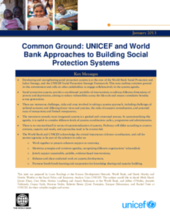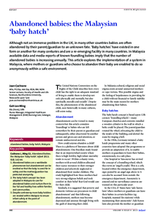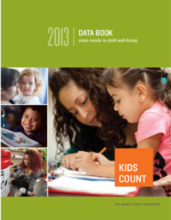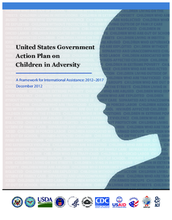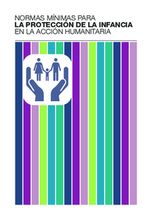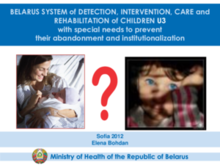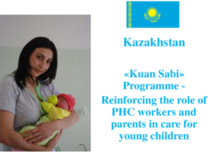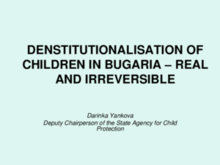Displaying 1261 - 1270 of 1759
This brief outlines the common ground between the World Bank and UNICEF in their commitment in developing and strengthening social protection systems and calls on other stakeholders to engage collaboratively to build such systems and expand their coverage.
This article explores the implementation of a system in Malaysia, where mothers or guardians who choose to abandon their baby are enabled to do so anonymously within a safe environment.
The 2013 KIDS COUNT Data Book provides a detailed picture of how children are faring in the United States. In addition to ranking states on overall child well-being, the Data Book ranks states in four domains: Economic Well-Being, Education, Health, and Family and Community.
The Action Plan on Children in Adversity is the first government wide strategic guidance for U.S. Government international assistance for children. The goal of the Action Plan is to achieve a world in which all children grow up within protective family care and free from deprivation, exploitation, and danger. It has three principal objectives, with Objective 2 specifically focusing on the importance of promoting family care and prevention of family-child separation.
These standards set out a common agreement on what needs to be achieved in order for child protection in humanitarian settings to be of adequate quality.
In its Annual report (2011-2012), the Indian Ministry of Women and Child Development reports on progress in the implementation of the Integrated Child Protection Scheme (ICPS), a new policy and programmatic strategy that specifically articulates the need to move away in approach and services from over-reliance on institutional care and towards responses that support family based care.
In 2011, SOS Children’s Villages International developed an assessment tool to measure a state’s implementation of the UN Guidelines for the Alternative Care of Children. This tool was used as a basis for conducting research by countries participating in the SOS Children’s Villages global advocacy campaign: Care for ME! Quality Care for Every Child. Country snapshots were produced for 7 countries. They include statistical data reporting the geographical prevalence of formal care institutions, number of children in these facilities, and more.
This presentation to the 2012 Sofia Conference introduces social services available in Belarus for the identification, intervention, care, and rehabilitation of children under the age of 3 with disabilities, in order to prevent their abandonment and placement in institutions.
This presentation to the 2012 Sofia Conference by the Kuan Sabi Program, in Kazakhstan suggests ways to improve the knowledge and skills of Primary Health Care workers that care for children under the age of 3.
This presentation to the 2012 Sofia Conference by Darinka Yankova, Deputy Chairperson of the State Agency for Child Protection addresses the challenges and the new vision for the deinstitutionalization of children in the Republic of Bulgaria.

